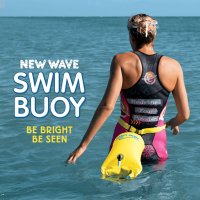No one chooses triathlon it for its simplicity. With so many moving parts and countless pieces of equipment and gear, it’s easy to overlook or simply disregard an argument for one more thing to add to your seemingly endless packing list. However, there is a tool that not only helps execute one of the most nerve-wracking disciplines of the sport but is also lightweight, inexpensive and legal to use in any USA Triathlon Sanctioned Race in the U.S. What is this magic device? A snorkel.
A little-known fact is the snorkel is completely legal to use without restriction and without penalty in USA Triathlon racing events in the United States. According to Certified Official Tom Reilly for full disclosure:
“Snorkels are legal equipment for use by triathletes under the USA Triathlon competitive rules. USAT rules outline what you cannot do versus what you can do. Swimming conduct is covered under Article IV in the USA Triathlon competitive rules. Nowhere under Article IV is the use of a snorkel prohibited. Note that 4.9 Illegal Equipment under Article IV, several things that cannot be used are specified during the swim. The use of a snorkel is not one of them. However, keep in mind that this applies only to events using USAT competitive rules. Others such as ITU and WTC may not allow snorkels.”
At the time of this article, it is still illegal to participate in any International Triathlon Union (ITU) event using a snorkel.
There is no prohibition or conditions for use, and using one does not exclude one from awards or rankings. If this is news to you, you’re in good company. But, now that you do know, let’s talk about why using a snorkel is beneficial to your swim training and who may benefit from using one in a race.
Snorkel Uses in Training
Step one: Become acquainted with your snorkel and ensure a proper fit. Unless you’re excellent at breathing exclusively in and out of your mouth, you may want to invest in a nose plug.
Step two: Practice normal breathing into the tube without escalating your heart rate. It may take a few dunks to get used to the feeling of breathing in water. You may also want to intentionally fill the breathing tube with water and practice clearing it. Even if you have no intention of using a snorkel in a race, you should be prepared if the tube becomes filled with water. A forceful exhale will clear it out nicely.
Benefits: The main benefit is the focus. Using a snorkel allows for a smooth breathing pattern so you are better able to focus on body position and force of your pull.
However, like paddles and pull buoys, snorkels should be used for specificity in training and not all the time. It’s important to practice rotation and breathing for improved technique.
But, what if the rotation involved in breathing makes swimming more difficult if not impossible? There is a certain population of triathletes who can benefit most from using a snorkel in training and racing.
Who Can Benefit Most from Using a Snorkel?
Anyone who has had a head or neck injury, with difficulty or pain when bilateral breathing (or turning your neck at all), can absolutely benefit from using a snorkel.
Anyone new to swimming or the sport of triathlon may also find snorkel use extremely beneficial when working on your stroke or in your first race. There is so much to think about when it comes to form, body position and rotation in the water that if you exclude the part where you need to think about breathing, it all becomes a little simpler.
And simplicity, although generally not a word associated with triathlon, is definitely something any triathlete would be happy to have a little more of.

